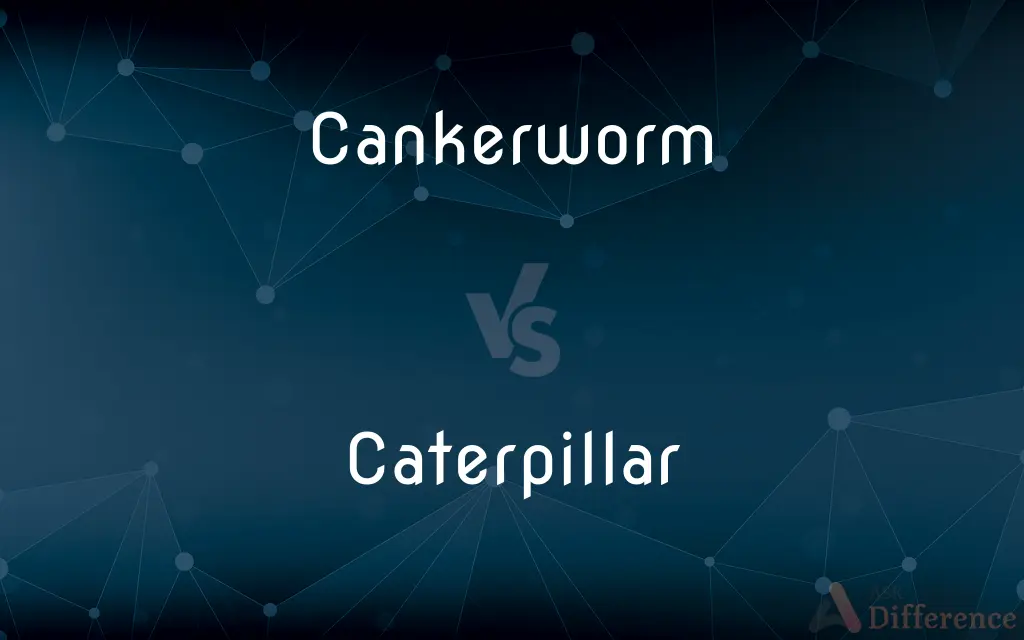Cankerworm vs. Caterpillar — What's the Difference?

Difference Between Cankerworm and Caterpillar
ADVERTISEMENT
Compare with Definitions
Cankerworm
The larva of either of two geometrid moths (Paleacrita vernata or Alsophila pometaria), destructive to fruit and shade trees.
Caterpillar
Caterpillars ( CAT-ər-pil-ər) are the larval stage of members of the order Lepidoptera (the insect order comprising butterflies and moths). As with most common names, the application of the word is arbitrary, since the larvae of sawflies are commonly called caterpillars as well.
Cankerworm
Either of two caterpillars, the larvae of geometrid moths, that are destructive to fruit, buds and leaves.
Caterpillar
The wormlike larva of a butterfly or moth.
Cankerworm
(figurative) A corrupting or destructive force.
ADVERTISEMENT
Caterpillar
Any of various insect larvae similar to those of the butterfly or moth.
Cankerworm
The larva of two species of geometrid moths which are very injurious to fruit and shade trees by eating, and often entirely destroying, the foliage. Other similar larvæ are also called cankerworms.
Caterpillar
The larva of a butterfly or moth; leafworm
The bird just ate that green caterpillar.
Cankerworm
Green caterpillar of a geometrid moth; pest of various fruit and shade trees
Caterpillar
A vehicle with a caterpillar track; a crawler
Caterpillar
(maths) A set of subtrees of a tree
Caterpillar
The larval state of a butterfly or any lepidopterous insect; sometimes, but less commonly, the larval state of other insects, as the sawflies, which are also called false caterpillars. The true caterpillars have three pairs of true legs, and several pairs of abdominal fleshy legs (prolegs) armed with hooks. Some are hairy, others naked. They usually feed on leaves, fruit, and succulent vegetables, being often very destructive, Many of them are popularly called worms, as the cutworm, cankerworm, army worm, cotton worm, silkworm.
Caterpillar
A plant of the genus Scorpiurus, with pods resembling caterpillars.
Caterpillar
A wormlike and often brightly colored and hairy or spiny larva of a butterfly or moth
Caterpillar
A large vehicle that is driven by caterpillar tracks; frequently used for moving earth in construction and farm work
Share Your Discovery

Previous Comparison
Croissant vs. Kipfel
Next Comparison
Achene vs. Caryopsis













































